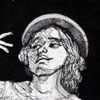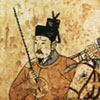How a Chinese Poet Found His Mother From a Past Life
A gifted Chinese poet in the Northern Song Dynasty, guided by a dream, found his mother from his previous life, fulfilling a vow he had made to her before his death.
Huang Tingjian (1045 – 1105), a poet, calligrapher, and painter was called “Three Unsurpassable” because of his multiple great talents. Huang passed the imperial examination at the age of 21 and was appointed administrator of Wuhu, Anhui Province, when he was only 26.
The same year, through an unusual dream, he came to understand his predestined connection with Wuhu.
The Dream
Huang had a vivid dream one day while taking a nap. In the dream, he left Yamen, the county where he conducted his daily business and judged civil and criminal cases, and headed for an unknown 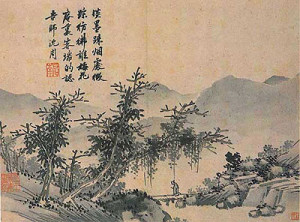 village.
village.
In the village he saw an elderly woman offering incense at an altar outside her house and mumbling someone’s name. As Huang walked closer, he noticed a bowl of celery noodles on the altar, which he picked up and ate. He then returned to Yamen County.
Upon waking up, he remembered every detail of the dream. Amazingly, his breath smelled like celery. But he dismissed it as just a dream.
The following day, when Huang took his nap, he had the exact same dream. Again, he woke up with the smell of celery on his breath.
This time he immediately set off to find the village by trying to follow the path he had taken in his dreams. As he walked, Huang noticed that the scenery on both sides was precisely the same as what he had seen in the dreams.
The Meeting
He eventually found the house where the elderly woman in had burned incense and offered celery noodles on an altar. When he knocked on the door, a gray-haired woman came out.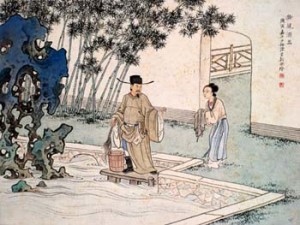
Huang asked her if someone had offered noodles outside the house. The woman answered: “It was my daughter’s death anniversary yesterday. Celery noodles was her favorite food when she was alive. So I prepare a bowl of celery noodles on this day every year and call her to come eat it.”
When Huang asked her how long ago her daughter passed away, she said, “It has been 26 years!”
Huang was exactly 26 years old, and the day before had been his birthday. He then made further inquiries.
The woman told him that this daughter was her only child. She loved reading, believed in the Buddhist teachings, and followed a vegetarian diet. At the age of 26, she died from an illness. Since Buddhists believe in reincarnation, at her death, the daughter promised her that she would definitely come back and visit her.
The Key
The old woman then invited Huang into the house and showed him a big wooden cabinet that held all the books her daughter had read. Unfortunately, no one knew where the key was. So for all these years, the cabinet had never been opened.
Oddly, Huang suddenly remembered where the key was hidden in a secret place, and opened the 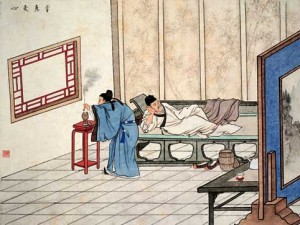 cabinet.
cabinet.
Among the books, were also many of the daughter’s writings. Reading them, Huang was astonished to find that all the articles he had written at the imperial examinations were contained in the daughter’s writings.
At this point, Huang realized that he had been that young lady in his previous life and had found his mother from that life.
He asked the old woman to come back to Yamen County and live with him, and he cared for her as his mother for the rest of her life.
Later Huang built a garden with a pavilion in his Yamen backyard. Inside the pavilion was a self-portrait etched on a stone and a poem that read:
A quasi-monk but with hair
Appearing mundane but with a transcending mind
There are dreams within my dream
I have enlightened to my lives beyond this dimension.
Huang’s story has been used to teach people not to envy other people’s talents, as these talents are accumulated over several lifetimes of hard work.
Posted in Past Life Therapywith comments disabled.



